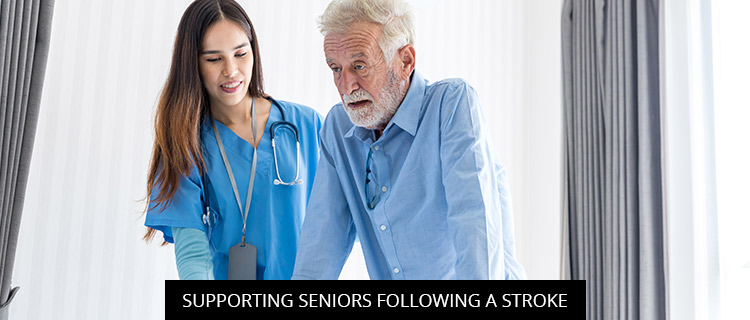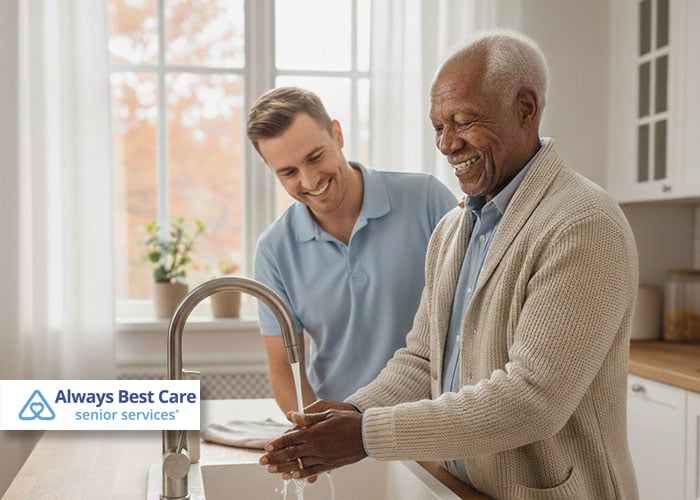Supporting Seniors Following a Stroke

Recovery from a stroke can take time. Even after leaving the hospital or rehab facility, seniors may experience weakness or paralysis in their arms or legs. This can make caring for themselves and safely living independently more difficult. While there are many things they can do on their own, there are other tasks that may require some assistance. A non-medical in-home caregiver can provide necessary support to seniors recovering from a stroke.
Navigating the Home
Following a stroke, older adults may need to use a wheelchair, walker, or cane for stability. Transitioning from sitting to standing or vice versa can be challenging due to muscle weakness or paralysis. A caregiver can help seniors with mobility issues to reduce risk of falls.
This may include rearranging furniture to create wider walkways or easier access. The caregiver can help reposition regularly used items to lower shelves or tables so they are easier to reach. This can minimize the need to reach or stretch. In-home care can also provide light housekeeping to keep the home clean, organized, and clutter-free.
It can also be beneficial to add grab bars near the shower, tub, and toilet to improve stability when getting in and out or up and down, especially when surfaces are wet. Using non-slip mats and rugs throughout the house can enhance safety as well.
Personal Care
Due to limited mobility or weakness, it may be difficult for seniors to get dressed or undressed, brush their hair, or get in or out of bed. A caregiver can assist with these tasks to keep seniors looking and feeling their best while reducing risk of falling.
In addition, a caregiver can remind seniors recovering from a stroke when it is time to take their medication, complete recommended exercises, or get ready for medical appointments related to follow-up care.
Meal Preparation
After a stroke, older adults may have some dietary restrictions. An in-home caregiver can work with them to create a meal plan, shop for and put away groceries, prepare food, and supervise them while eating. Proper nutrition is important for recovery and keeping up their strength. Caregivers can also make sure seniors are not eating foods that are not safe and may pose a choking hazard.
Increased Awareness
While non-medical caregivers do not perform medical care, they can be on alert for signs of complications or another stroke. Seniors who have had one stroke are at increased risk of having another. Catching warning signs early and getting help can reduce risk of more serious issues. A caregiver can also be alert for potential dangers and fall risks within the home to keep seniors safer as they recover from a stroke.
Contact Always Best Care today at (855) 470-2273 to schedule a free consultation and learn more about how non-medical in-home care can benefit seniors following a stroke and allow them to continue aging in place more safely and comfortably.





